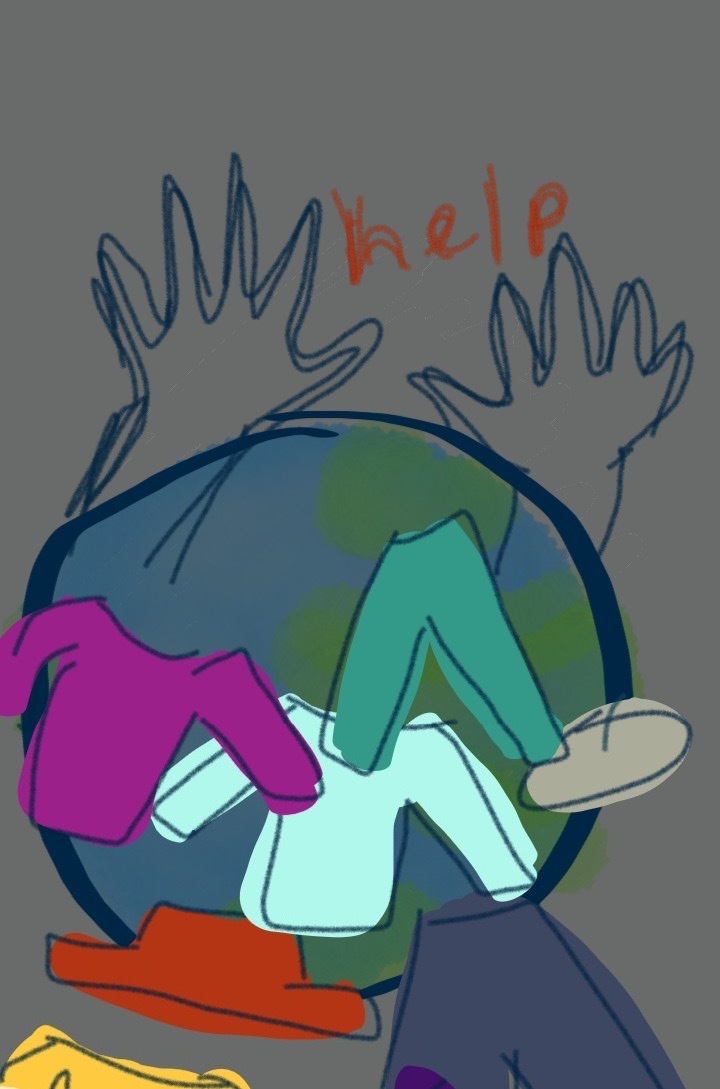
As a society, it is our right and responsibility to be educated on the different ways that we can potentially be negatively affected by different aspects of our life.
One big part of it is clothes, specifically the idea of fast fashion.
“Fast fashion” is defined as cheap and low-quality clothing that is rapidly produced and cycled in and out of the market to keep up with the latest trends. These clothes are purposely made cheaply so that consumers will buy more clothes often.
On the outside looking in, this may not seem like a huge problem. But it negatively affects the Earth as a whole.
More than 60% of garments produced every year end up wasted by going directly into landfills or being burned in incinerators.
According to Tamborasi.com, in 2016, H&M was caught burning 19 tonnes of unsold merchandise.
We all end up wasting the same amount of clothes when we give in to the notion that fast fashion is better because purchase more clothes. It completely gets rid of the notion of the sustainability movement.
Fast fashion is terrible for young workers and women because they don’t get paid enough although they work long hours, they are subjected to dangerous working conditions with no benefits or protection,
According to SustainYourStyle.org, the fashion industry is the second-largest industrial polluter, behind oil.
According to Vogue, the fashion industry is responsible for 20-35% of ocean microplastics and 20% of global water waste. About 93% of surveyed fashion brands do not pay their workers a living wage.
You may think that the $10 dress you’re considering purchasing is worth it, but when you educate yourself on all of the child labor, forced labor, insane work hours with little to no pay, and exposure to toxic chemicals that goes into it, you may re-think your fashion endeavors.
A smart, sustainable, and ethical alternative to fast fashion would be to participate in thrift shopping. It’s a fun and easy way to get clothes at an inexpensive rate. Anyone can be a part of this environmental fashion change by either donating or buying these donated clothes from thrift stores.



